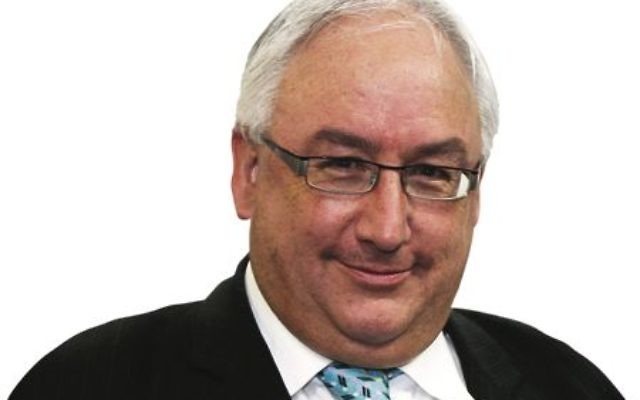Tackling bias at the ABC
IT is my sad experience with the ABC over many years that there is little chance that the ABC board or, particularly, its retiring general manager and editor-in-chief Mark Scott will take any action on the serious matter of biased Middle East reporting, which this newspaper constantly outlines.
There is fair and insightful reporting from the ABC’s ‘other’ Middle East correspondent Matt Brown, but the bias most of the time certainly confuses the wider public. Now the situation is more egregious because some of this reporting may encourage extremists in Australia.
There is, however, hope for the ABC. Late last year, I led a small group who met some senior ABC executives, including international editor Craig McMurtrie and Jo Puccini, executive producer of 7.30. We calmly discussed my constituents’ agitation with Sophie McNeill’s broadcasts from Jerusalem. In particular, we focused on a program in October when 7.30 host Leigh Sales introduced a Sophie McNeill report on the stabbings in Israel.
Like so many reports, her introduction seemed to equate the killers with the victims, by saying, “Just hours ago, Israeli security forces shot two more Palestinians after they tried to board a school bus south of Jerusalem.” Leigh Sales is very smart. She has high standards.
This introduction was out of character, given the facts. This is what we explained to the ABC executives, identifying McNeill’s proclivity to equate victim and perpetrator. As I asked in Parliament, “in what moral universe should we say that the media should pay more attention to the people with knives in their hands than the people with knives in their chests?”
Following that meeting, on December 3, 7.30 broadcast a program on the incitement of the Palestinian Authority and various other jihadist preachers. The program examined the case of 73-year-old Prof Richard Lakin, a lifelong supporter of Palestinian–Israeli reconciliation, who was stabbed to death by Palestinian terrorists.
Prior to this report, on Andrew Bolt’s program, I drew a parallel between public support for police shooting an attacker in the middle of a stabbing incident in Endeavour Hills, with the situation in Israel.
At least 7.30 now appears to have tried to address the issue of incitement. Sadly, it’s too little, too late. As Alex Ryvchin recently wrote in the Daily Telegraph, “Inculcating the Palestinian youth with fables of the glory and heroism of those who have killed civilians in cold blood is standard practice in Palestinian society … It is intended to inspire the young to emulate their bloody acts, just as students in healthier societies would aspire to emulate the example of their nations’ great leaders and pioneers.”
Because of years of simplistic, biased or incorrect reporting, the public in Australia doesn’t understand why Israeli–Palestinian peace accords constantly fail. But someone else does.
Among the British and Australian MPs lampooned in a subsequent report by McNeill was Lord David Trimble, who won the Nobel Peace Prize for his role in the successful conclusion of the Good Friday Agreement after 900 years of conflict in Ireland. He is a great man – it was an honour to be in his presence.
Unfortunately, McNeill’s tendency to retell the Palestinian narrative when the UK/Australian delegation met the Palestinian leadership asserted itself once again.
As the Palestinian Education Minister Dr Sabri Saidam whinged to the ABC that the Australian and British delegations were “rude”, such was the story’s narrative. This was all made worse as The Guardian and Fairfax spun the confrontation into a tawdry domestic hate-fest focused on Christopher Pyne, Bronwyn Bishop and Tim Wilson.
Of course, that’s not what really happened. What would have been the Australian public’s reaction if they’d known the man who won the Nobel Peace Prize set the tone for the meeting by pointing out that the frenzied stabbings were evidence of a hate-soaked education and political atmosphere in Palestinian society?
He explained that, for a decade before the Northern Ireland peace agreement was concluded, the two sides had worked to remove the disparaging and hateful references to the other.
Now, how do you think the average Australian would have reacted if McNeill’s report had begun something like this: “Lord Trimble, the architect of peace in Northern Ireland, has pleaded with the Palestinian education minister to drop incitement against Israelis in Palestinian education, sports and schools’? He and the chair of the UK Conservative Party Sir Eric Pickles joined Australian Labor MPs Glenn Sterle and Tim Watts to question the effect of fanaticising Palestinian youth by naming three schools after terrorist Dalal Mughrabi.”
Of course, these are far more important issues than easy political shots at Bronwyn Bishop, with the ABC giving a lazy recounting of the Palestinian narrative.
The cold, hard reality is that a small minority of young Muslims are being fanaticised in their bedrooms by social media all over the world. While the numbers are relatively small, the harm they can do is substantial.
What happens in Israel eventually happens in Paris, San Bernardino and even Parramatta. The ‘Facebook Intifada’ is a clear and present danger for people across the world, as McNeill and 7.30 showed themselves in their December 8 story.
Again, I have no hope that managing directors like Scott will ever understand this. My hope is that people with high standards of journalism, such as Craig McMurtrie and Leigh Sales, will try to self-correct this pattern of bias in the ABC’s Middle East reporting.
It would be a service to all Australians in this dangerous time of global jihadist terror.
Michael Danby is the Federal Member for Melbourne Ports.


comments